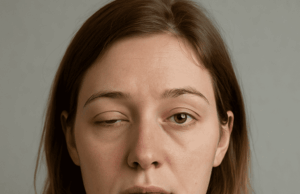 Injectable anti-wrinkle treatments should be classed as medicines so they can be properly regulated, the British Association of Aesthetic Plastic Surgeons (BAAPS) said.
Injectable anti-wrinkle treatments should be classed as medicines so they can be properly regulated, the British Association of Aesthetic Plastic Surgeons (BAAPS) said.
BAAPS has recently raised concerns that people can buy dermal filler treatments online without knowing exactly what chemicals are in them.
The organisation suggests that the treatments, which involve injecting a gel-like substance into wrinkle sites, should be classed as medicines so that they are properly tested before they can be sold.
The move would also regulate who can give the treatments and would ban advertising for the products.
BAAPS president Rajiv Grover said:
“It is of paramount importance that the growing area of largely unregulated dermal fillers be controlled and we have put forward for consideration the simple measure of reclassifying these injectables as medicines.
“This will kill three birds with one stone by regulating which ones come on the market, automatically banning their advertising and defining who is qualified to dispense them.”
The body made the recommendation to the Keogh review of cosmetic surgery and procedures. BAAPS also recommended that the term ‘surgeon’ is legally protected and that there should be an obligatory register for practitioners.
Surgeons from abroad should have UK-based indemnity insurance and advertising for cosmetic procedures should be “severely restricted”, a BAAPS spokeswoman added.
BAAPS said there should also be a financial protection scheme for people who choose to have cosmetic surgery to prevent another scenario akin to the PIP implant scandal.












